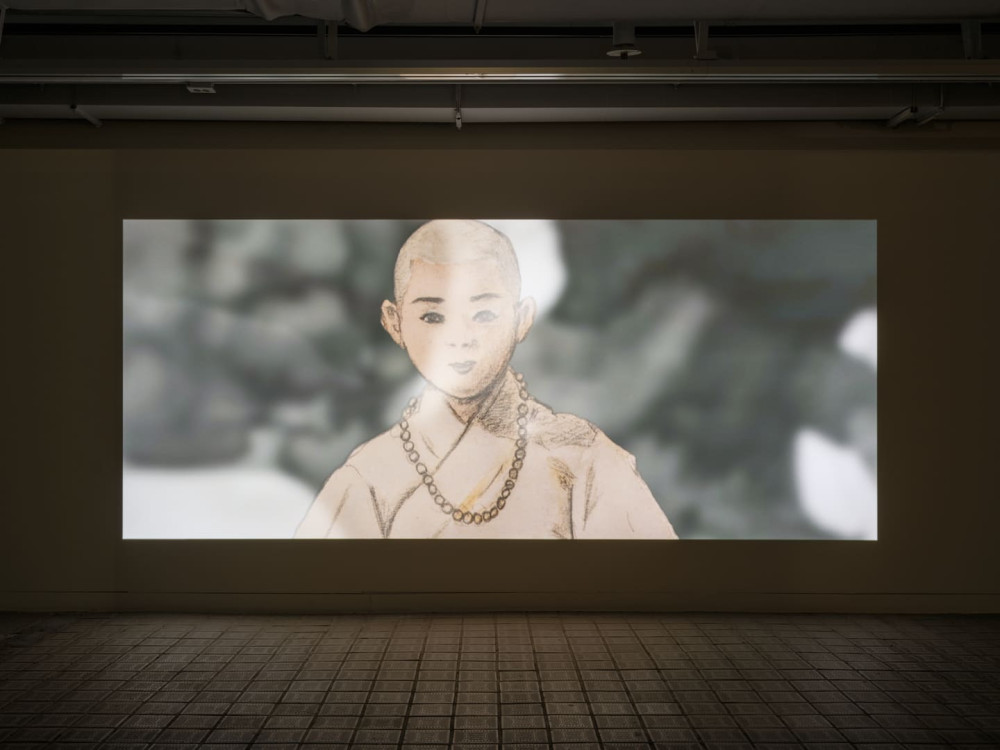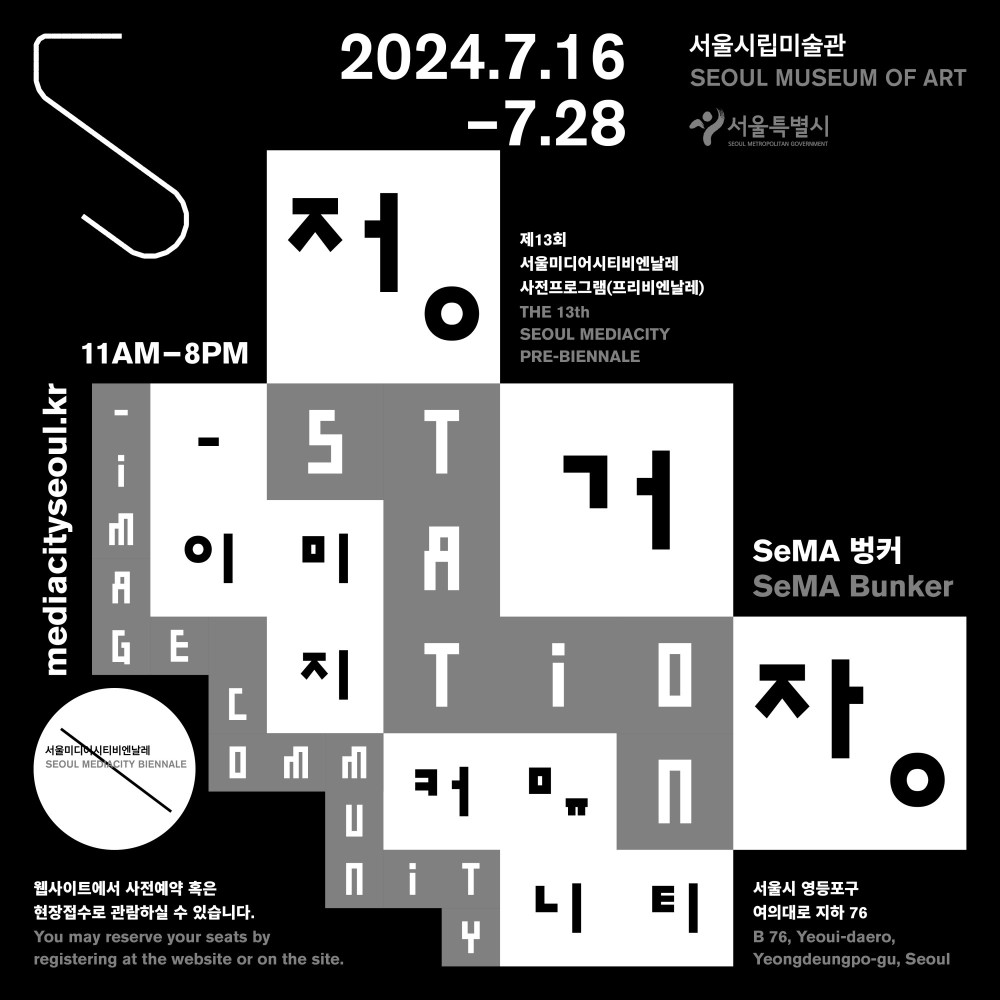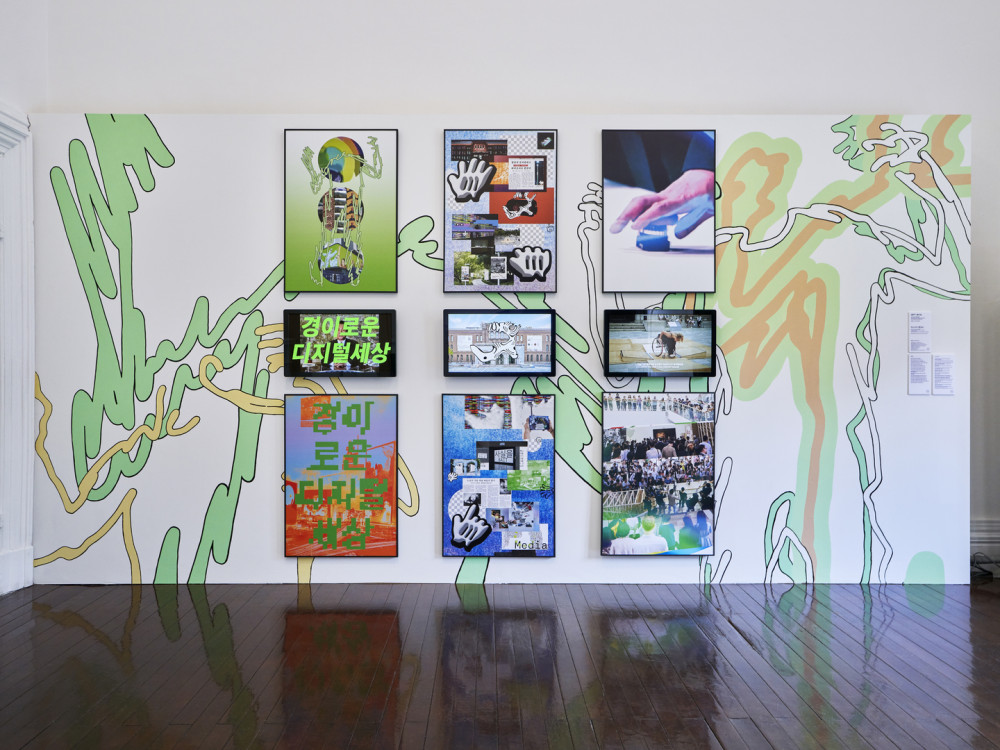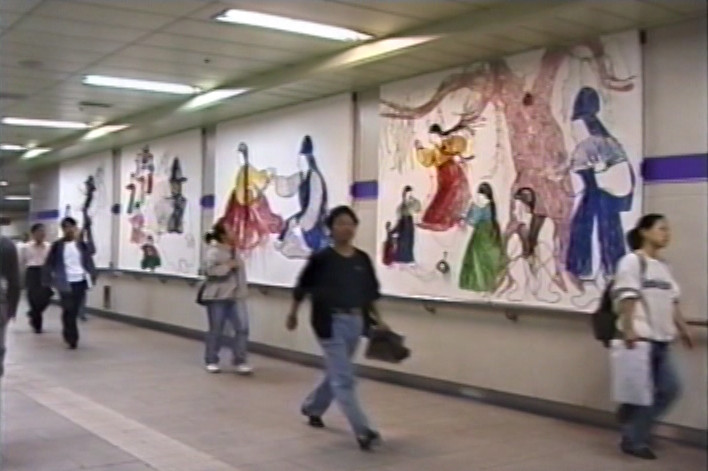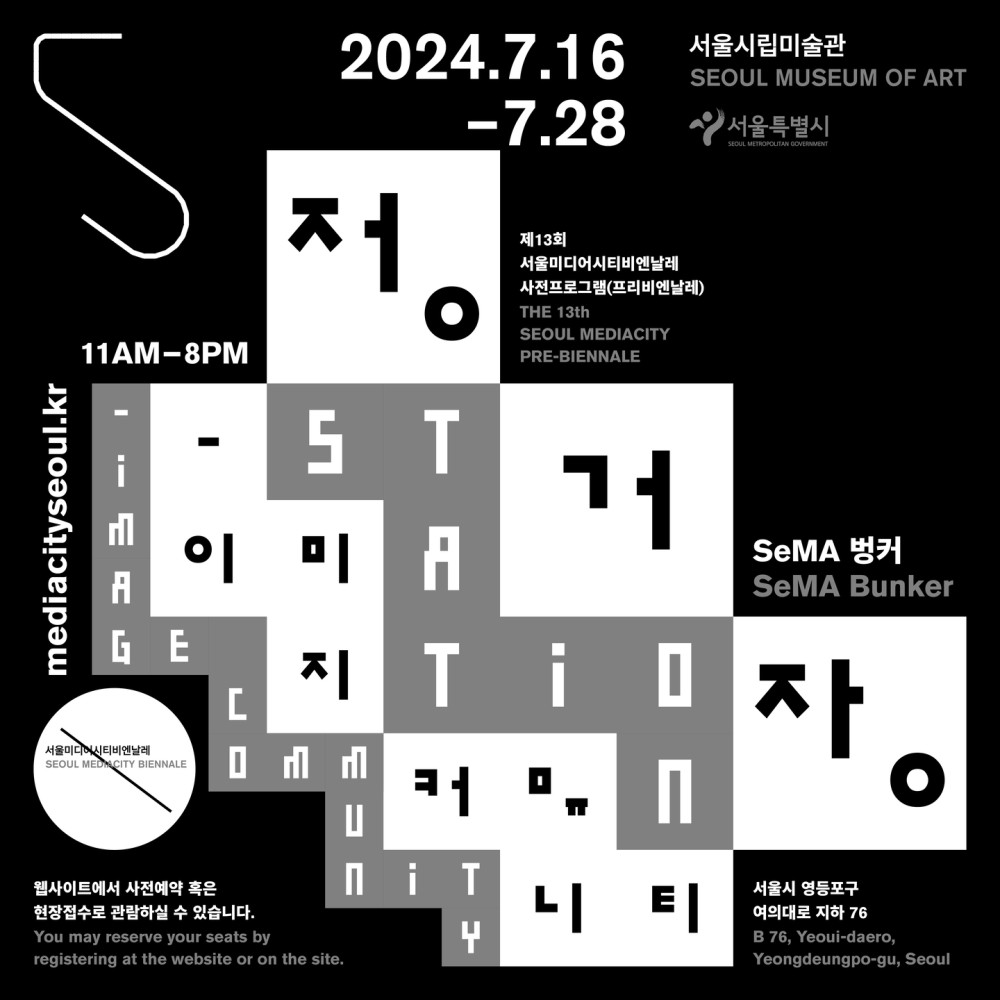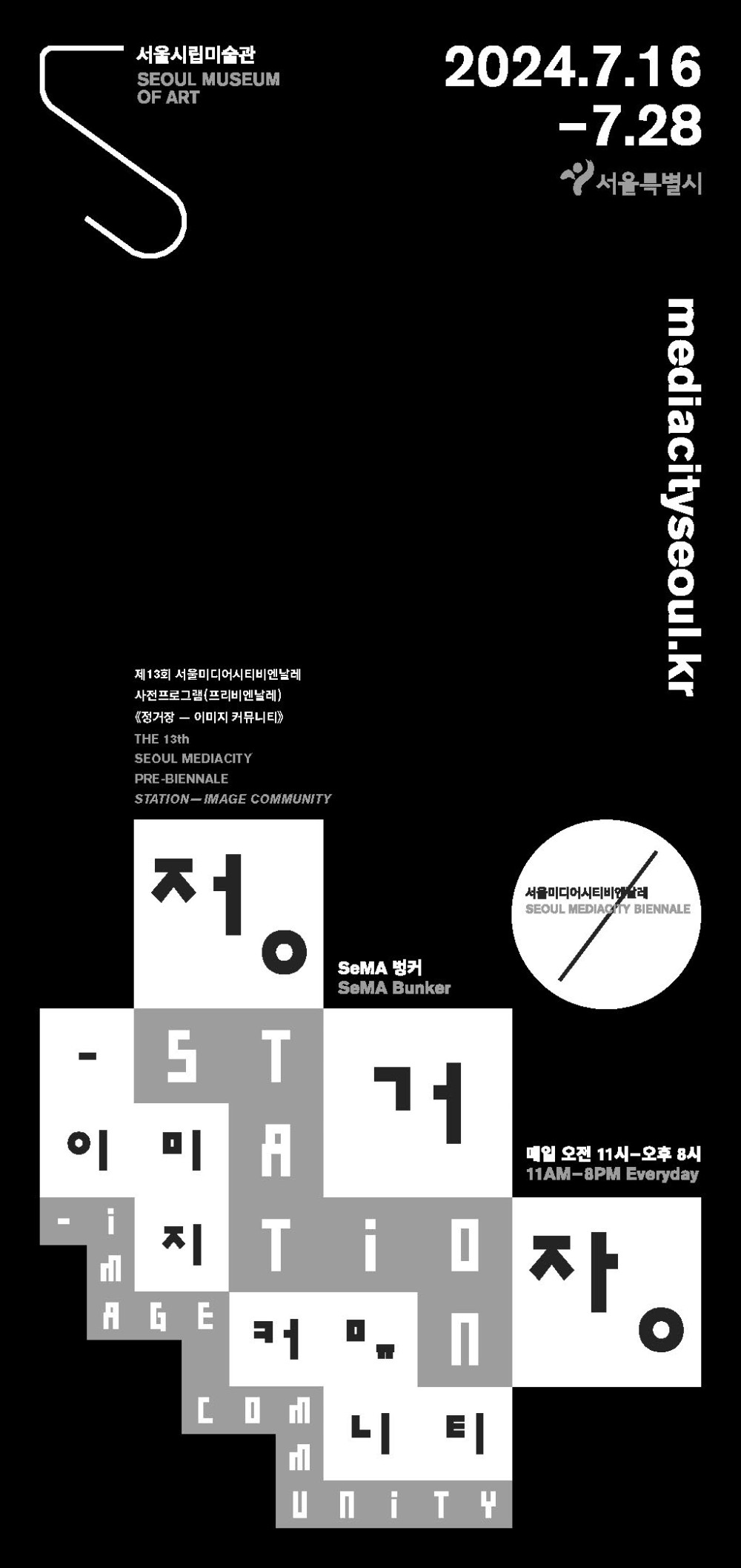
Rim Dong Sik, who entered high school in 1961, dreamed of becoming an artist and began to contemplate “existentialism” when he first encountered paintings. He found answers to his questions about life and death in the book Introduction to Buddhism, which he read by chance. In doing so, he discovered the completeness of art through Buddha’s teachings of perceiving his inner self in order to comprehend the universe and achieve the realization of transcendent beauty. The Buddhist Boy (1964) is painted like a hybrid style that unites traditional Eastern poetry calligraphy (si-seo-hwa) and cinemascope, unfolding across a 13-piece “picture story” about a high school student from a rural village who goes to a temple to focus on his studies. There, he meets a monk around his own age who virtuously protects Buddhist teachings, reflecting the character of a transcendent artist as well as the aspirations of a boy who dreams of a new world at a time when the scars of the Korean War had not yet healed. Contemporary art collective GLIMWORKERS adapts the artist’s early painting studies into moving images by dissembling elements of text and image into multiple perspectives along with contemporary sound edition, which provokes the empirical sense of the painting’s original idea.
